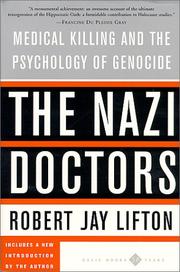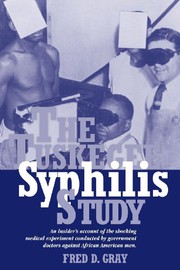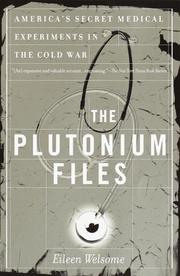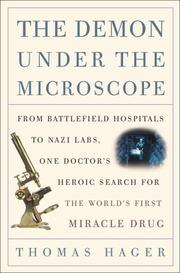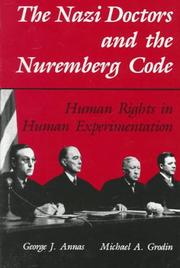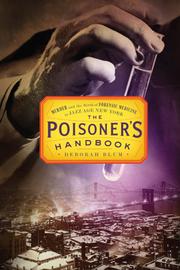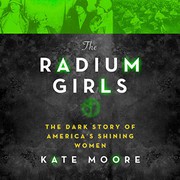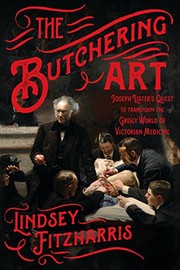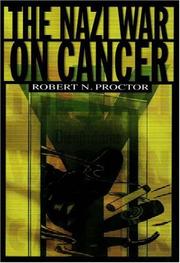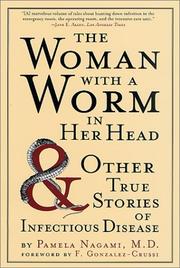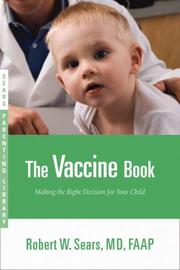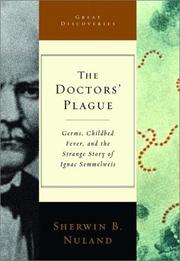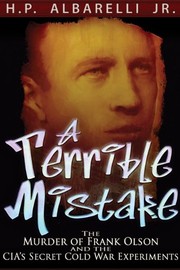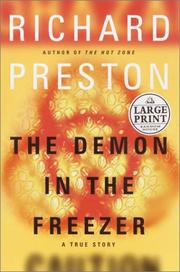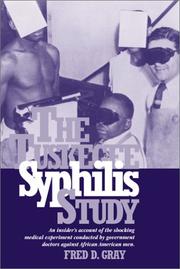Are you fascinated by the ethical dilemmas and moral quandaries surrounding human experimentation? Dive into the dark world of medical malpractice and unethical scientific research with our list of the 20 best books about unethical human experimentation. From chilling true stories to thought-provoking fiction, these books will challenge your beliefs and leave you questioning the boundaries of scientific exploration. Whether you’re a student of bioethics or simply intrigued by the darker side of medical history, there’s a book on unethical human experimentation waiting to captivate you.
Contents
- 1 20 Best Books About Unethical Human Experimentation
- 2 The Immortal Life of Henrietta Lacks
- 3 The Nazi Doctors: Medical Killing and the Psychology of Genocide
- 4 The Tuskegee Syphilis Study: An Insiders’ Account of the Shocking Medical Experiment Conducted by Government Doctors Against African American Men
- 5 The Plutonium Files: America’s Secret Medical Experiments in the Cold War
- 6 The Demon Under the Microscope: From Battlefield Hospitals to Nazi Labs, One Doctor’s Heroic Search for the World’s First Miracle Drug
- 7 The Nazi Doctors and the Nuremberg Code: Human Rights in Human Experimentation
- 8 The Darkening Age: The Christian Destruction of the Classical World
- 9 The Great Influenza: The Story of the Deadliest Pandemic in History
- 10 The Poisoner’s Handbook: Murder and the Birth of Forensic Medicine in Jazz Age New York
- 11 The Radium Girls: The Dark Story of America’s Shining Women
- 12 The Butchering Art: Joseph Lister’s Quest to Transform the Grisly World of Victorian Medicine
- 13 The Nazi War on Cancer
- 14 The Woman with a Worm in Her Head: And Other True Stories of Infectious Disease
- 15 The Vaccine Book: Making the Right Decision for Your Child
- 16 The Doctors’ Plague: Germs, Childbed Fever, and the Strange Story of Ignac Semmelweis
- 17 The Birth of the Pill: How Four Crusaders Reinvented Sex and Launched a Revolution
- 18 A Terrible Mistake: The Murder of Frank Olson and the CIA’s Secret Cold War Experiments
- 19 Unit 731: Testimony
- 20 The Demon in the Freezer: A True Story
- 21 The Tuskegee Syphilis Study: The Real Story and Beyond
- 22 Conclusion
- 23
- 24 Books on College Athletes: 2024 Update of the Best Titles
- 25 Books on Love And Relationships: 2024 Update of the Best Titles
- 26 Books on Marketing And Advertising: 2024 Update of the Best Titles
20 Best Books About Unethical Human Experimentation
The Immortal Life of Henrietta Lacks
by Rebecca Skloot
The Immortal Life of Henrietta Lacks by Rebecca Skloot is a compelling nonfiction book that delves into the story of Henrietta Lacks, a woman whose cells were taken without her consent and used for groundbreaking medical research. This book explores the ethical implications of this unauthorized use of her cells, known as HeLa cells, and the impact it had on Henrietta’s family. Skloot skillfully weaves together the science behind the cells’ immortalization and the personal story of the Lacks family, creating a thought-provoking narrative that raises important questions about medical ethics and the exploitation of individuals for scientific advancement. This book is a must-read for anyone interested in the intersection of ethics and medical research, and it sheds light on the often overlooked history of unethical human experimentation.
The Nazi Doctors: Medical Killing and the Psychology of Genocide
by Robert Jay Lifton
The Nazi Doctors: Medical Killing and the Psychology of Genocide by Robert Jay Lifton is a chilling exploration of the role of physicians in the Holocaust. Lifton delves into the moral and psychological disintegration of German doctors who participated in the systematic murder of millions of people through unethical human experimentation, euthanasia, and genocide. This book provides a disturbing look at how medical professionals, who are supposed to be dedicated to healing and saving lives, became complicit in some of the most heinous crimes in history. Lifton’s thorough research and insightful analysis shed light on the disturbing intersection of medicine and evil, making this a crucial read for anyone interested in understanding the depths of human depravity and the ethical responsibilities of those in the medical profession.
The Tuskegee Syphilis Study: An Insiders’ Account of the Shocking Medical Experiment Conducted by Government Doctors Against African American Men
by Fred D. Gray
The Tuskegee Syphilis Study: An Insiders’ Account of the Shocking Medical Experiment Conducted by Government Doctors Against African American Men by Fred D. Gray is a chilling exposé of one of the most infamous cases of unethical human experimentation in American history. Gray, a civil rights attorney who represented the victims of the study, provides a firsthand account of the heinous 40-year experiment in which African American men were deliberately left untreated for syphilis, despite the availability of penicillin as a cure. Through Gray’s narrative, readers are taken inside the study, witnessing the betrayal and exploitation of these men by the very doctors who were supposed to care for them. This book about unethical human experimentation sheds light on the racial and ethical implications of the study, making it a crucial read for anyone interested in the dark history of medical research.
The Plutonium Files: America’s Secret Medical Experiments in the Cold War
by Eileen Welsome
The Plutonium Files: America’s Secret Medical Experiments in the Cold War by Eileen Welsome is a chilling and eye-opening book on unethical human experimentation. Welsome meticulously investigates the covert government program that involved injecting unsuspecting Americans with plutonium in the name of national security. The book delves into the moral and ethical implications of these heinous experiments, shedding light on the victims’ harrowing experiences and the subsequent cover-up by the authorities. Welsome’s compelling narrative skillfully navigates through the Cold War era, revealing the dark underbelly of scientific research and government secrecy. The Plutonium Files is a must-read for anyone interested in the history of unethical human experimentation and the ethical questions it raises.
The Demon Under the Microscope: From Battlefield Hospitals to Nazi Labs, One Doctor’s Heroic Search for the World’s First Miracle Drug
by Thomas Hager
The Demon Under the Microscope by Thomas Hager is a gripping historical account of the race to discover the world’s first miracle drug, sulfa drugs, during World War II. This book delves into the groundbreaking research and the heroic efforts of Dr. Gerhard Domagk, who fought against the constraints of war and Nazi labs to develop this life-saving medication. The narrative explores the ethical dilemmas and the intense competition in the pharmaceutical industry, shedding light on the dark side of scientific advancement. Hager’s narrative skillfully intertwines the personal stories of the scientists involved, the impact of their discoveries on battlefield hospitals, and the ethical implications of their work. The Demon Under the Microscope is a fascinating and thought-provoking read that offers insight into the world of medical research and the consequences of unethical human experimentation.
The Nazi Doctors and the Nuremberg Code: Human Rights in Human Experimentation
by George J. Annas
The Nazi Doctors and the Nuremberg Code: Human Rights in Human Experimentation by George J. Annas is a compelling and thought-provoking book that delves into the dark history of unethical human experimentation during the Nazi era. This book provides a comprehensive overview of the atrocities committed by Nazi doctors and the subsequent development of the Nuremberg Code, which established ethical guidelines for human experimentation. Annas skillfully examines the ethical implications of the heinous experiments conducted on prisoners during World War II and the impact of these events on the field of medical ethics. Through meticulous research and compelling storytelling, the author sheds light on the importance of upholding human rights and the ethical treatment of individuals in medical research. This book is essential reading for anyone interested in understanding the ethical complexities surrounding human experimentation.
The Darkening Age: The Christian Destruction of the Classical World
by Catherine Nixey
The Darkening Age: The Christian Destruction of the Classical World by Catherine Nixey is a captivating exploration of the tumultuous period when Christianity rose to power and the classical world suffered at its hands. Nixey delves into the religious zeal that led to the destruction of ancient temples, artwork, and knowledge, shedding light on the violent suppression of pagan traditions and the rise of religious intolerance. With vivid storytelling and meticulous research, Nixey paints a vivid picture of the darkening of the classical world as Christianity’s influence grew. This thought-provoking book uncovers the ethical implications of the Christian takeover, making it a must-read for anyone interested in the intersection of religion, history, and the consequences of religious extremism. The Darkening Age is a compelling reminder of the dangers of unchecked power and the potential for unethical human experimentation in the name of religious fervor.
The Great Influenza: The Story of the Deadliest Pandemic in History
by John M. Barry
The Great Influenza by John M. Barry is a gripping account of the deadliest pandemic in history. Barry skillfully weaves together the scientific, political, and personal aspects of the 1918 influenza outbreak, offering a comprehensive understanding of the devastation it caused. The book delves into the origins of the virus, the global spread of the disease, and the public health response, providing a fascinating exploration of the intersection of science and society during a crisis. Barry’s narrative is both informative and compelling, drawing readers into the world of early 20th-century medicine and the ethical dilemmas faced by researchers and healthcare professionals. The Great Influenza is a must-read for anyone interested in the history of pandemics and the human experience in the face of widespread disease.
The Poisoner’s Handbook: Murder and the Birth of Forensic Medicine in Jazz Age New York
by Deborah Blum
The Poisoner’s Handbook: Murder and the Birth of Forensic Medicine in Jazz Age New York by Deborah Blum is a fascinating delve into the world of toxicology and forensic science. Set in the 1920s, this book recounts the pioneering work of medical examiner Charles Norris and toxicologist Alexander Gettler as they battle against corruption and ignorance to establish forensic medicine as a legitimate scientific discipline. Blum’s narrative is a gripping blend of true crime and scientific discovery, as she uncovers the deadly poisons and unethical human experimentation that plagued New York City during the Prohibition era. This book about unethical human experimentation is not only a thrilling read, but also a chilling reminder of the lengths some will go to for power and profit, and the tireless efforts of those who fight for justice and truth.
The Radium Girls: The Dark Story of America’s Shining Women
by Kate Moore
The Radium Girls by Kate Moore is a gripping non-fiction book about the shocking and tragic true story of young women who were employed to paint watch dials with radium in the 1920s. The book delves into the lives of these “shining women” who were unknowingly subjected to unethical human experimentation as they ingested and painted with radioactive material. Moore skillfully explores the devastating impact of radium poisoning on these workers, as well as their fight for justice against the powerful corporations that employed them. Through meticulous research and vivid storytelling, the author brings to light the harrowing consequences of unethical human experimentation and the resilience of the women who suffered as a result. The Radium Girls is a compelling and important read that sheds light on a dark chapter in American history.
The Butchering Art: Joseph Lister’s Quest to Transform the Grisly World of Victorian Medicine
by Lindsey Fitzharris
The Butchering Art is a captivating dive into the world of Victorian medicine and the pioneering work of Joseph Lister. Lindsey Fitzharris transports readers to a time when surgery was a brutal and deadly affair, plagued by infection and high mortality rates. Lister’s revolutionary use of antiseptic techniques transformed the grisly world of Victorian medicine, saving countless lives and changing the course of surgical history. Fitzharris skillfully weaves together a narrative that is both informative and gripping, shedding light on the horrors of 19th-century surgery and the groundbreaking advancements that revolutionized the field. The Butchering Art is a must-read for anyone interested in medical history, as it shines a light on the dark and often overlooked history of unethical human experimentation and the quest for medical progress.
The Nazi War on Cancer
by Robert N. Proctor
The Nazi War on Cancer by Robert N. Proctor is a compelling exploration of the dark intersection between science and morality during the Third Reich. This book delves into the disturbing history of unethical human experimentation under the Nazi regime, shedding light on the sinister medical practices that took place during this era. Proctor’s meticulous research and engaging storytelling provide a chilling account of how the pursuit of scientific knowledge was perverted into atrocities against human subjects. Through vivid anecdotes and in-depth analysis, the author uncovers the harrowing truth about the Nazi regime’s unethical human experimentation, making this book a sobering reminder of the ethical responsibilities that accompany scientific progress. The Nazi War on Cancer is an essential read for anyone interested in understanding the ethical implications of medical research and the dark legacy of unethical human experimentation.
The Woman with a Worm in Her Head: And Other True Stories of Infectious Disease
by Pamela Nagami
The Woman with a Worm in Her Head: And Other True Stories of Infectious Disease by Pamela Nagami is a captivating and eye-opening collection of real-life accounts of infectious diseases. Nagami, a physician, shares intriguing and often shocking tales of patients afflicted by a wide range of infectious illnesses, from parasites to viruses. The book delves into the fascinating world of infectious diseases, offering a glimpse into the lives of those affected and the medical professionals who treat them. Nagami’s storytelling is both informative and engaging, making this book a compelling read for anyone interested in medicine, microbiology, or simply the human experience. With its gripping narratives and insightful commentary, The Woman with a Worm in Her Head is a must-read for those curious about the often mysterious and misunderstood world of infectious diseases.
The Vaccine Book: Making the Right Decision for Your Child
by Robert W. Sears
The Vaccine Book: Making the Right Decision for Your Child by Robert W. Sears is a comprehensive guide for parents who want to make informed decisions about vaccinating their children. Dr. Sears provides a balanced and thorough examination of the most common childhood vaccines, discussing their benefits, potential risks, and alternatives. The book empowers parents with the knowledge they need to have productive conversations with healthcare providers and make the best choices for their children’s health. With clear explanations and helpful tips, The Vaccine Book is a valuable resource for any parent navigating the complex world of childhood vaccinations.
The Doctors’ Plague: Germs, Childbed Fever, and the Strange Story of Ignac Semmelweis
by Sherwin B. Nuland
The Doctors’ Plague: Germs, Childbed Fever, and the Strange Story of Ignac Semmelweis by Sherwin B. Nuland is a captivating exploration of the history of medicine and the ethical dilemmas surrounding it. Nuland delves into the life and work of Ignac Semmelweis, a Hungarian physician who made a groundbreaking discovery about the transmission of infection in maternity wards during the 19th century. This book sheds light on the resistance and skepticism Semmelweis faced from the medical establishment, as well as the ethical implications of his findings. Nuland’s narrative skillfully weaves together the scientific, social, and historical aspects of this story, making it a compelling and thought-provoking read. The Doctors’ Plague is a gripping account of a pivotal moment in medical history and the ethical challenges faced by those who seek to challenge the status quo.
The Birth of the Pill: How Four Crusaders Reinvented Sex and Launched a Revolution
by Jonathan Eig
The Birth of the Pill by Jonathan Eig is a captivating account of how four remarkable individuals revolutionized the way we think about sex and contraception. Eig takes readers on a journey through the lives of Margaret Sanger, Katherine McCormick, Gregory Pincus, and John Rock as they work tirelessly to create the birth control pill. This book is not just a historical narrative, but a gripping tale of scientific innovation, political struggle, and personal sacrifice. The author skillfully weaves together the stories of these four crusaders, shedding light on the challenges they faced and the ethical dilemmas they encountered in their quest to develop the pill. The Birth of the Pill is a thought-provoking and enlightening exploration of a pivotal moment in women’s health and reproductive rights, making it a must-read for anyone interested in the history of contraception and the impact of unethical human experimentation.
A Terrible Mistake: The Murder of Frank Olson and the CIA’s Secret Cold War Experiments
by H.P. Albarelli Jr.
A Terrible Mistake: The Murder of Frank Olson and the CIA’s Secret Cold War Experiments by H.P. Albarelli Jr. is a gripping book on unethical human experimentation that delves into the dark and shocking world of government-sponsored mind control and drug testing. This meticulously researched book uncovers the true story of Frank Olson, a CIA scientist who was unwittingly subjected to mind-altering experiments and ultimately met a mysterious and tragic end. Albarelli Jr. exposes the unethical human experimentation carried out by the CIA during the Cold War, revealing the disturbing lengths to which the government went in its pursuit of psychological warfare tactics. Through detailed accounts and thorough investigation, the author sheds light on this chilling chapter of history, making this a must-read for anyone interested in uncovering the truth behind the CIA’s secret cold war experiments.
Unit 731: Testimony
by Hal Gold
Unit 731: Testimony by Hal Gold is a chilling and eye-opening book about the infamous Japanese military unit that conducted unethical human experimentation during World War II. Gold delves into the atrocities committed by Unit 731, shedding light on the heinous experiments carried out on thousands of innocent victims. Through survivor testimonies and historical research, the author paints a vivid and harrowing picture of the inhumane practices of the unit, including vivisection, biological warfare research, and other gruesome experiments. This book is a compelling and important account of a dark chapter in history, shedding light on the depths of human cruelty and the urgent need for ethical standards in scientific research. Unit 731: Testimony is a must-read for anyone interested in understanding the horrors of unethical human experimentation.
The Demon in the Freezer: A True Story
by Richard Preston
The Demon in the Freezer: A True Story by Richard Preston is a gripping non-fiction book that delves into the world of bioterrorism and the threat of smallpox. Preston reveals the dark and unsettling history of smallpox, the only disease to have been eradicated, and the potential dangers associated with its possible return. This book is a chilling account of the global efforts to contain the virus and the ethical dilemmas surrounding the existence of smallpox samples in laboratories around the world. With a focus on the potential for bioterrorism and the implications for public health, The Demon in the Freezer is a thought-provoking and engrossing read that sheds light on the dangers of unethical human experimentation.
The Tuskegee Syphilis Study: The Real Story and Beyond
by Fred D. Gray
The Tuskegee Syphilis Study: The Real Story and Beyond by Fred D. Gray is a groundbreaking book on unethical human experimentation that delves into the infamous Tuskegee Study. Gray, a prominent civil rights attorney, provides a comprehensive overview of the study, shedding light on the unethical practices and the impact it had on the African American community. The book goes beyond the study itself, exploring the legal and ethical implications, as well as the broader context of medical racism in the United States. Gray’s compelling narrative and insightful analysis make this book a must-read for anyone interested in the history of unethical human experimentation and its enduring consequences.
Conclusion
Uncovering the dark and unsettling world of Unethical Human Experimentation, the 20 best books about unethical human experimentation provide a chilling insight into the depths of human depravity and the ethical dilemmas surrounding scientific research. These books delve into real-life accounts and fictional narratives that will leave readers questioning the boundaries of scientific exploration and the moral implications of such experiments. From historical atrocities to futuristic dystopias, these books offer a captivating and thought-provoking exploration of a haunting subject that continues to resonate today.
Which Unethical Human Experimentation book is best?
The best book on Unethical Human Experimentation can vary with personal preference, but three widely recommended titles are:
- The Immortal Life of Henrietta Lacks by Rebecca Skloot,
- The Nazi Doctors: Medical Killing and the Psychology of Genocide by Robert Jay Lifton,
- The Tuskegee Syphilis Study: An Insiders’ Account of the Shocking Medical Experiment Conducted by Government Doctors Against African American Men by Fred D. Gray.
Each offers valuable insights and could be a great starting point.
What are the best books to learn about Unethical Human Experimentation?
For those looking to learn about Unethical Human Experimentation, there is a wealth of literature that can provide a comprehensive understanding of the subject. Some of the most highly recommended books include:
- The Immortal Life of Henrietta Lacks by Rebecca Skloot,
- The Nazi Doctors: Medical Killing and the Psychology of Genocide by Robert Jay Lifton,
- The Tuskegee Syphilis Study: An Insiders’ Account of the Shocking Medical Experiment Conducted by Government Doctors Against African American Men by Fred D. Gray,
- The Plutonium Files: America’s Secret Medical Experiments in the Cold War by Eileen Welsome,
- The Demon Under the Microscope: From Battlefield Hospitals to Nazi Labs, One Doctor’s Heroic Search for the World’s First Miracle Drug by Thomas Hager,
- The Nazi Doctors and the Nuremberg Code: Human Rights in Human Experimentation by George J. Annas,
- The Darkening Age: The Christian Destruction of the Classical World by Catherine Nixey,
- The Great Influenza: The Story of the Deadliest Pandemic in History by John M. Barry,
- The Poisoner’s Handbook: Murder and the Birth of Forensic Medicine in Jazz Age New York by Deborah Blum,
- The Radium Girls: The Dark Story of America’s Shining Women by Kate Moore
These books offer a range of perspectives on Unethical Human Experimentation, covering various aspects and approaches to the subject.
What are the best books on Unethical Human Experimentation?
The best books on Unethical Human Experimentation include:
- The Immortal Life of Henrietta Lacks by Rebecca Skloot,
- The Nazi Doctors: Medical Killing and the Psychology of Genocide by Robert Jay Lifton,
- The Butchering Art: Joseph Lister’s Quest to Transform the Grisly World of Victorian Medicine by Lindsey Fitzharris,
- The Nazi War on Cancer by Robert N. Proctor,
- The Great Influenza: The Story of the Deadliest Pandemic in History by John M. Barry,
- The Nazi Doctors and the Nuremberg Code: Human Rights in Human Experimentation by George J. Annas.
Each offers unique insights into the subject. While these books on the topic of Unethical Human Experimentation are highly regarded, it’s important to note that any list of ‘best’ books is subjective and reflects a range of opinions.
What are the best Unethical Human Experimentation books of all time?
Choosing the best Unethical Human Experimentation books of all time can vary depending on who you ask, but seven titles that are often celebrated include
- The Immortal Life of Henrietta Lacks by Rebecca Skloot,
- The Nazi Doctors: Medical Killing and the Psychology of Genocide by Robert Jay Lifton,
- The Demon Under the Microscope: From Battlefield Hospitals to Nazi Labs, One Doctor’s Heroic Search for the World’s First Miracle Drug by Thomas Hager,
- The Great Influenza: The Story of the Deadliest Pandemic in History by John M. Barry,
- The Radium Girls: The Dark Story of America’s Shining Women by Kate Moore,
- The Nazi War on Cancer by Robert N. Proctor,
- and The Butchering Art: Joseph Lister’s Quest to Transform the Grisly World of Victorian Medicine by Lindsey Fitzharris.
Each of these books has made a significant impact in the field of Unethical Human Experimentation and continues to be influential today.


